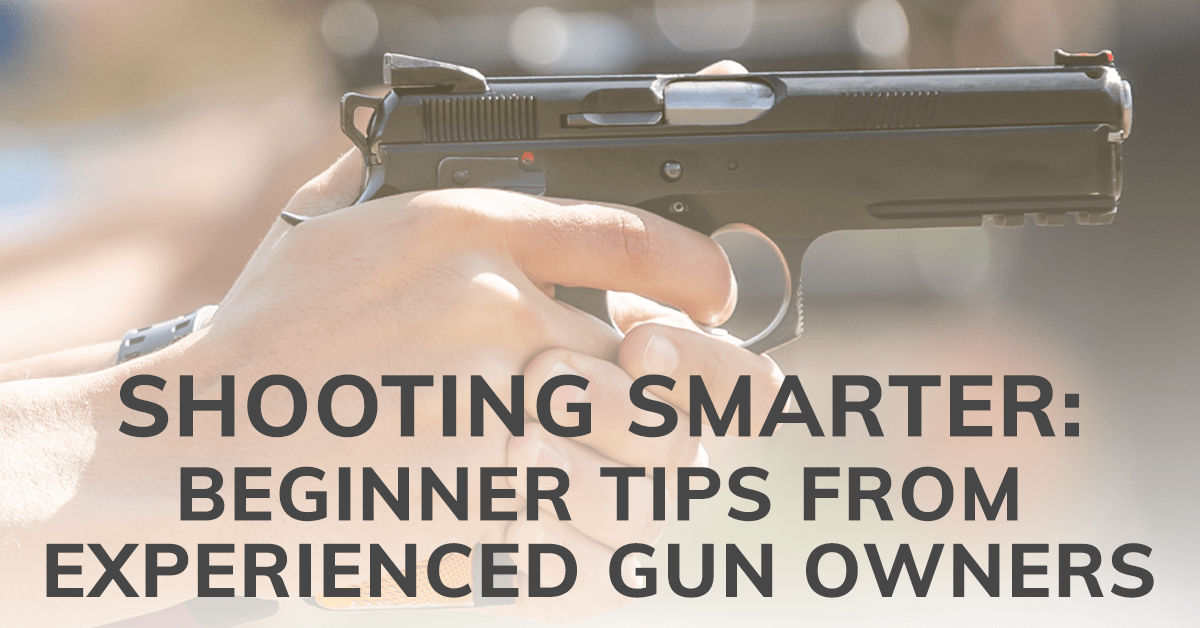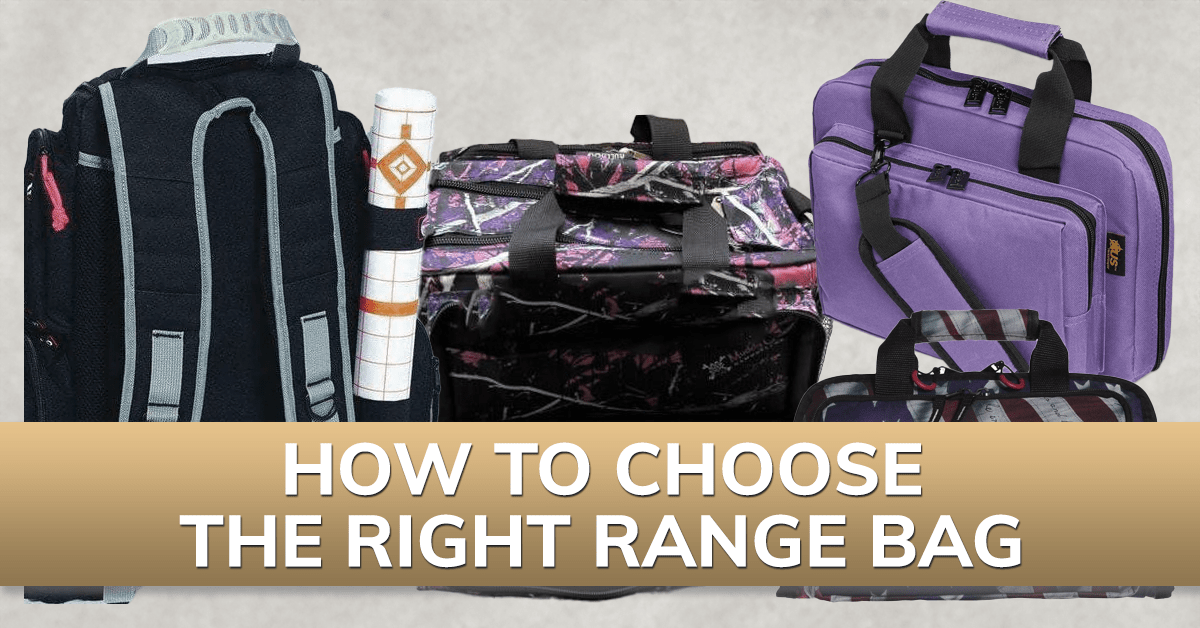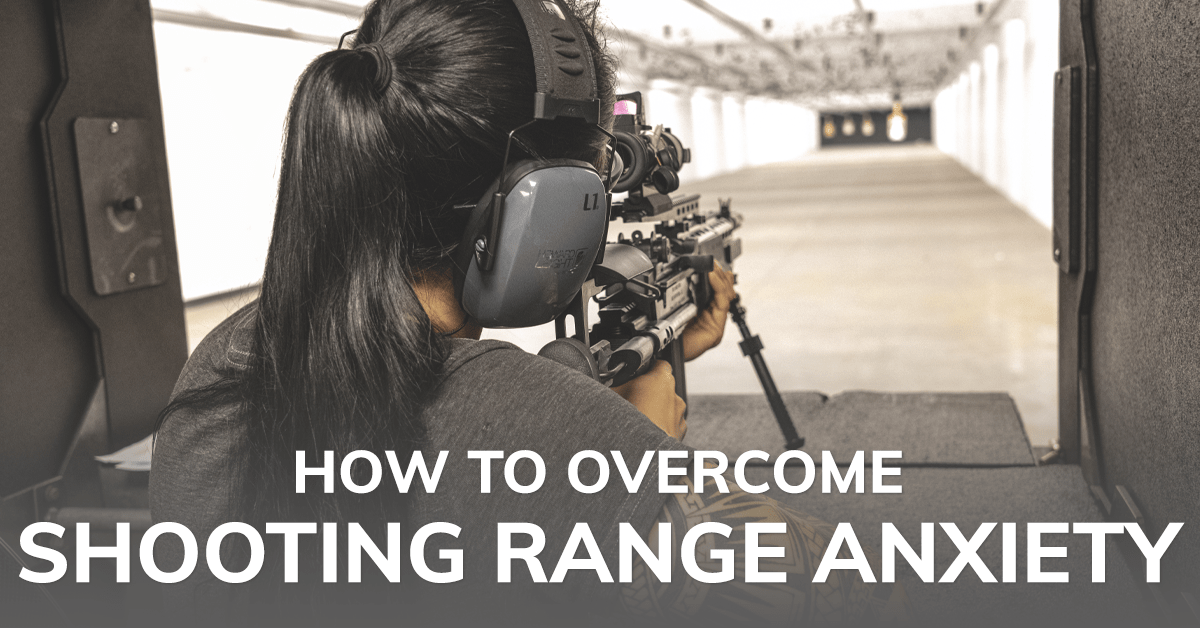Your Cart is Empty
Orders Over $100 Ship FREE (USA)!
Orders Over $100 Ship FREE (USA)!
CONCEALED CARRY
(Apparel with holster pockets or concealed-carry features)
(Apparel with holster pockets or concealed-carry features)
PARTS & GEAR
RANGE STYLE
Gift shopping & not sure about size or style? Give a gift card instead!
Gift shopping & not sure about size or style? Give a gift card instead!
GIFT IDEAS
The entire site is full of products that make great gifts, so browse all of our collections! Still not sure? Give a gift card!
The entire site is full of products that make great gifts, so browse all of our collections! Still not sure? Give a gift card!
EXPLORE
Thanksgiving deals & chances to win - Details here! Item you want not on sale? Use code BFCM24 to save $5 on $30+ orders.
How to Avoid Potential Range Hazards
4 min read
A trip to your local range to practice, take a lesson, or shoot a match is generally very safe. Range owners, officers, and staff work hard to make sure that they do what they can to keep people out of harm's way. While you're not likely to encounter many issues at the range, there are some potential hazards at both indoor and outdoor ranges that you should be aware of before you go.
Loud noises
Shooting is a loud activity. Protecting your hearing is important because you only get one chance to prevent hearing loss. Once your hearing is gone, it’s gone. Unfortunately, it's not rare to see people trying to enter a range prior to putting on their hearing protection, or showing up with no ear protection at all.
Electronic hearing protection is a handy piece of equipment to have. It cuts out the loud noises while still permitting you to hear conversation or directions from the Range Safety Officer (RSO).
You might want to take more protective measures at indoor ranges. Because of the sustained gunfire in closed quarters at indoor ranges, electronic protection has a difficult time reacting and muffling all the sounds. A good way to continue to protect your hearing is by “doubling up” on your hearing protection and wearing the foam ear inserts or ear plugs in addition to your electronic ear muffs. The downside to this is that you might be unable to hear range commands or other verbal instruction. But if you’re just headed in to practice, doubling up is a good way to compensate for the noise and the electronic protection.
Lead exposure
Exposure to lead is something that happens at any range though of course the levels are more concentrated at an indoor range. The best way to combat lead exposure is to thoroughly clean your hands once you have finished shooting. There are also handy portable wipes that are designed specifically for lead removal that you can keep in your range bag.
Never carry food and drink into a range as the lead particulate in the air can settle on to what you are eating and drinking. Most ranges have a “no food or drink” rule for this reason. It's also important to understand that lead will settle on anything you take into the range with you; your range bag, your purse, as well as your clothes and shoes. If you shoot often and reload your own ammunition, it might be worth a doctor visit to get your lead levels tested periodically, just to be safe.
Trip Hazards
Trip and fall hazards are probably the least likely to occur, but you should still be aware of them. Spent brass casings that collect on the pavement or even on hard ground can act like marbles when you step on them causing you to slide and potentially fall. Ranges should be aware of this hazard and do their best to keep brass swept up. If you enter a range and your assigned area has a lot of brass, ask for a broom to at least sweep aside so you won’t misstep, possibly while you’re shooting and take a fall.
Another potential trip hazard is the gear you bring with you. Often times, there isn’t a really good place to stow your range bag or ammo can in the lane with you. It’s easy to get tangled up in a strap or fall over your bag if you have had to place it behind you. Try to get your gear completely stowed or be very aware of where you’ve placed it.
Unsafe Shooters
Too often when we enter a range, we may not take the time to look around us to see what is going on in the other lanes or bays. After all, there’s usually a Range Safety Officer on duty, whose job it is to keep the range safe. Do not turn the responsibility for your safety over to a stranger.
Unsafe shooters are the biggest potential hazard at any range. In most cases, the patron is not being purposely unsafe but is mostly inexperienced or uneducated. There are multiple opinions about how to handle these people. In instances where you can, the best course of action is to make the on-duty Range Safety Officer aware of your concerns and allow them to handle it. However, a tragic accident can happen in the blink of an eye, so if you see a shooter that is being unsafe, such as pointing the muzzle at you, themselves or others, you MUST say something immediately.
Pointing out unsafe behavior can be done in such a way as to not be condescending or nasty, but you should be direct and firm. Just loudly saying “Stop” can cease the unsafe act long enough to tell them what you observed and why it was unsafe. Then get the RSO involved so they can watch the shooter.
If the shooter continues to be unsafe or if the RSO is busy or otherwise inattentive to the situation, pack your belongings and leave the range! Don’t stay in an unsafe situation.
Overall, indoor and outdoor ranges are safe places to visit. As long as you are aware of the potential hazards, be aware of your surroundings, and take action to mitigate unsafe situations, shooting at your local range is a fun and safe way to practice your firearm skills.
Also in Getting Started: At the Range

Shooting Smarter: Beginner Tips from Experienced Gun Owners
3 min read
Discover the invaluable lessons our social followers wished they knew when they began their shooting journey.
Read More
How to Choose a Range Bag
5 min read
Before you buy another range bag, read this guide to help you figure out what size and type of bag will work best for you.
Read More
How to Overcome Shooting Range Anxiety
3 min read
Feeling shooting range anxiety? Here are several things you can do to keep those fears in check so the range can become a place where you feel in control.
Read More